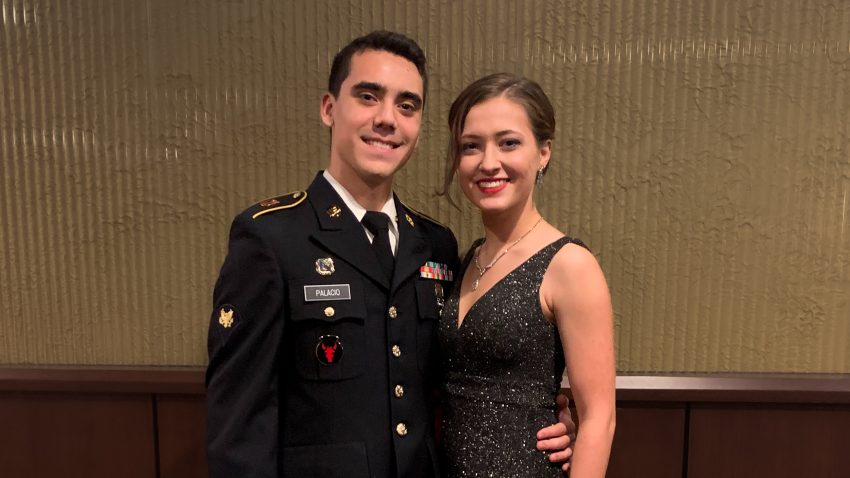
My boyfriend and me at the UofM AF ROTC Dine-Out this past December. Branden is my biggest supporter and will probably be wandering in and out of my Zoom background from time to time.
Hello everyone! My name is Sarah Witmer (she/her). I am a sophomore Theater major with a concentration in Management Studies. I am thrilled to be a part of Democracy and the Arts this January, despite the program shifting remote due to COVID-19. I will be Zooming in from Minneapolis, but I am originally from Des Moines, IA, where I grew up in the world of a non-profit history museum. Both my parents work(ed) at Living History Farms, an immersive agricultural ‘living’ museum that educates visitors on the 300+ year legacy of Iowa Farms. It is there that I found my love of history and culture.
Democracy and the Arts stood out to me because of its acknowledgment of the intersection between art and the social-political atmosphere in which it exists. Over the years, I have found an interest in theater productions that are in direct conversation with a movement, event, or ongoing issues. Using performance as a means of processing or coping as a society deeply intrigues me. Many of my favorite productions have challenged me to see my world from a new perspective. In the future, I would like to work with groups that use theatre to “get in the way and make some waves,” as John Lewis said. I fully agree with him that the arts are more than just for entertainment, but are a means of empowering the people who interact with them.
I am also excited to dive into the topic of patronage. Who is funding the arts and how does that influence its creation and survival. Over the summer, I read a book titled Theatre and Politics of Modern Quebec by Elaine F. Nardocchio and I found the history of who ‘owned’ the theatre fascinating. At various times, different people (The church, government, commercial companies, etc.) hold the power, and art responds accordingly. Even at times when the theatre was outlawed, it still found ways of surviving and thriving.
For this class, I am excited and slightly nervous to speak with the wide variety of arts workers and political influencers to learn more about their organizations. It is one thing to read from a textbook, but hearing stories and learning through people firsthand is a priceless education. Let’s get started!
